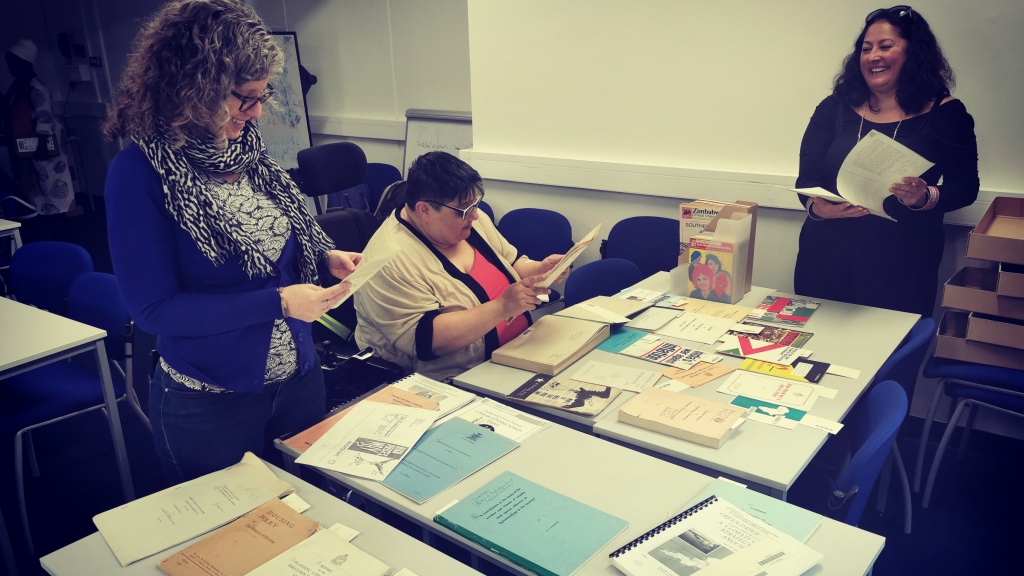
In May this year a really positive and inspiring workshop based on the BLDS Legacy Collection (and funded by the Sussex Higher Education Innovation Fund (HEIF)) took place. Organised by Paul Gilbert from Global Studies and Danny Millum from the Library, the event was in two parts.
The morning featured presentations from a number of researchers using the collections in their current work in the morning: Dr Gerardo Serra (Manchester), Dr Erica Nelson (IDS) and Dr Alice Corble (Sussex Library AHRC-RLUK Fellow) on their engagements with the legacy collection in their current projects.
These presentations all signposted different ways that this unique and underused collection could be of value to researchers, and are well worth checking out.
However, it was the afternoon session that was particularly fruitful. Participants had been asked in advance to pick out some items from the collection that either particularly interested them OR which appertained to their research, and as a consequence everyone in attendance had a direct interest in the materials and the discussion which followed.
The subjects and countries covered included: Cambodia; climate; economy and inflation; family planning; liberation and resistance; Nigeria; the Non-Aligned Movement; planning and housing; and Tricontinental – and a gallery of images of the materials displayed can be found below.

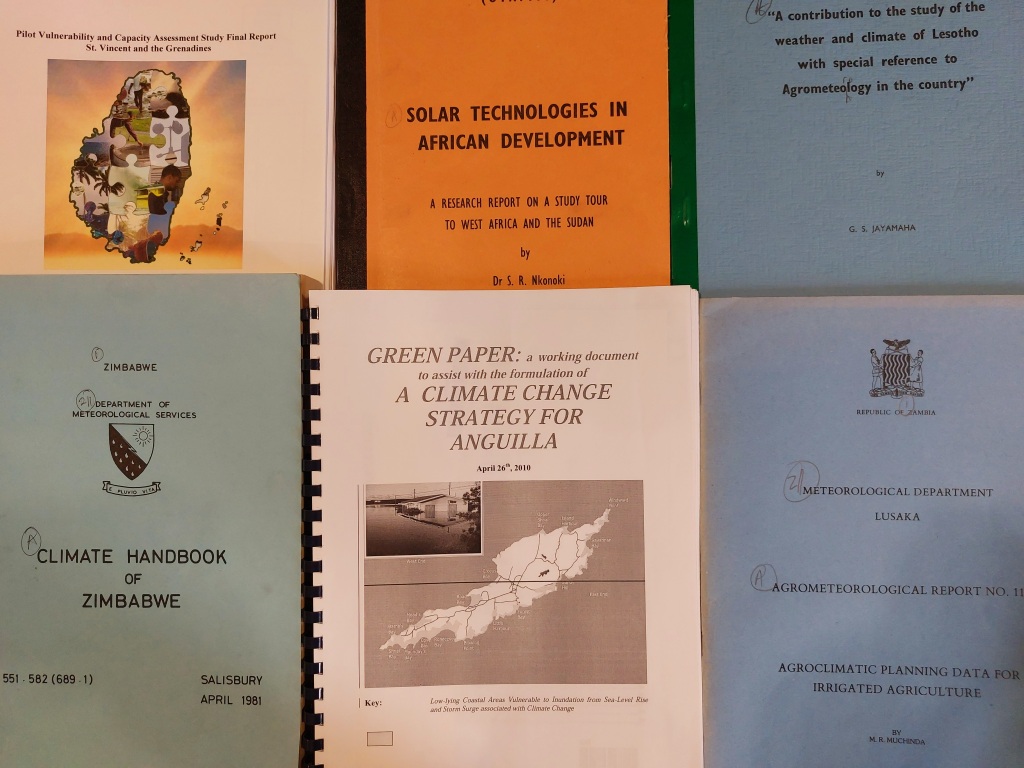


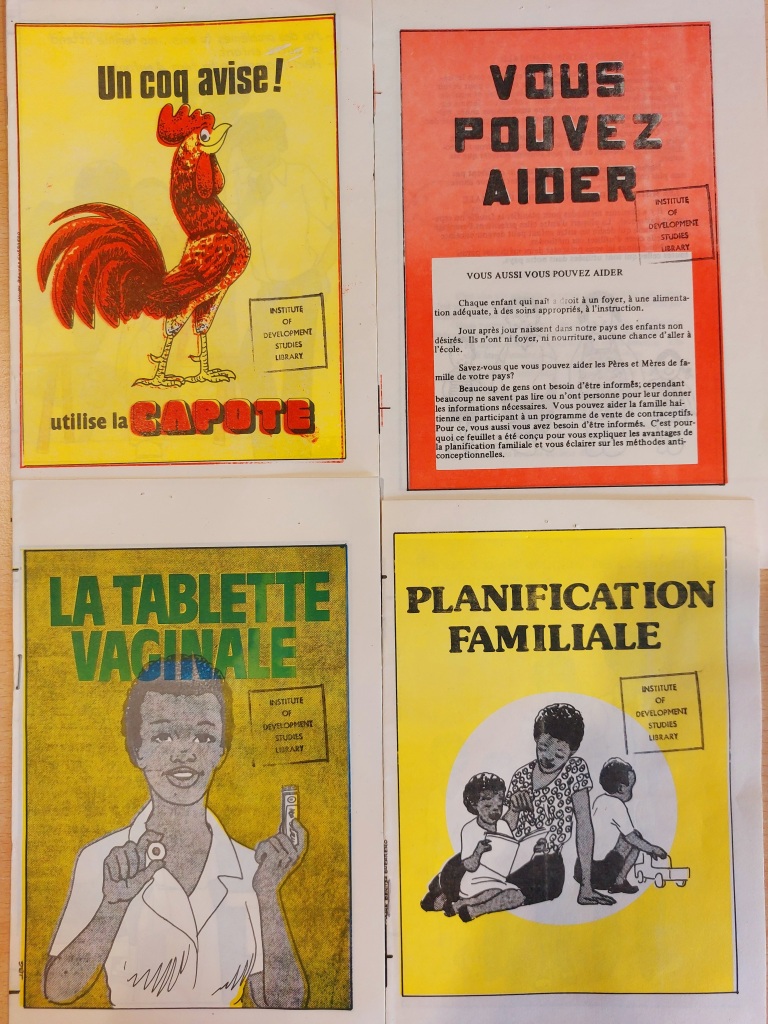


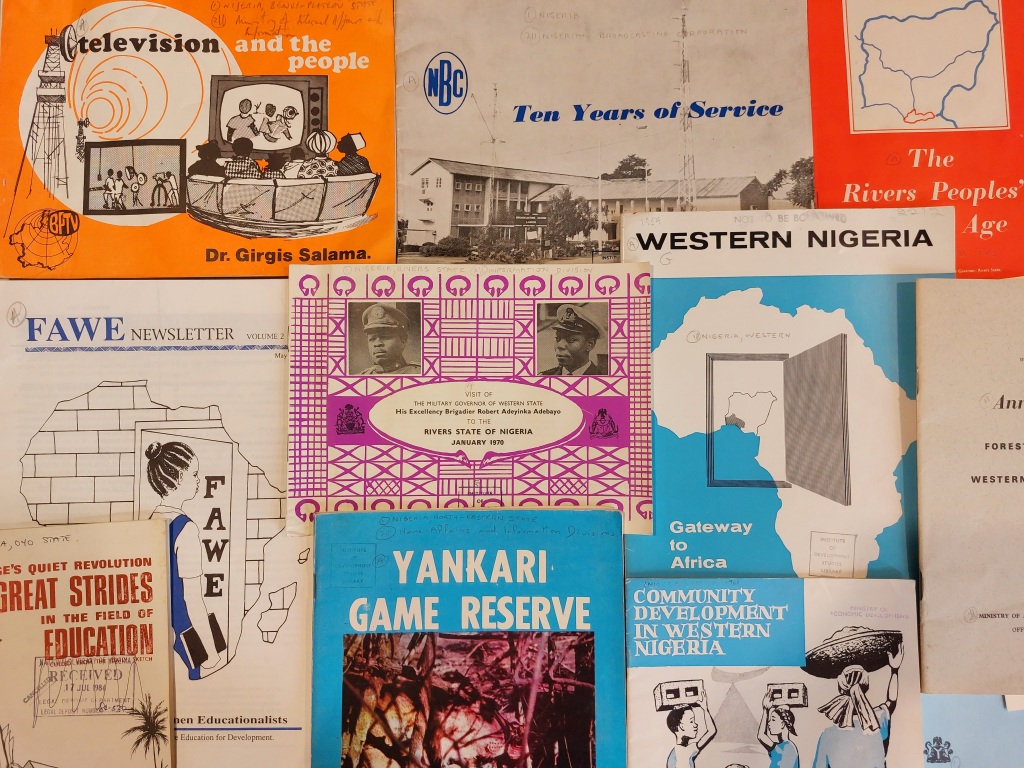

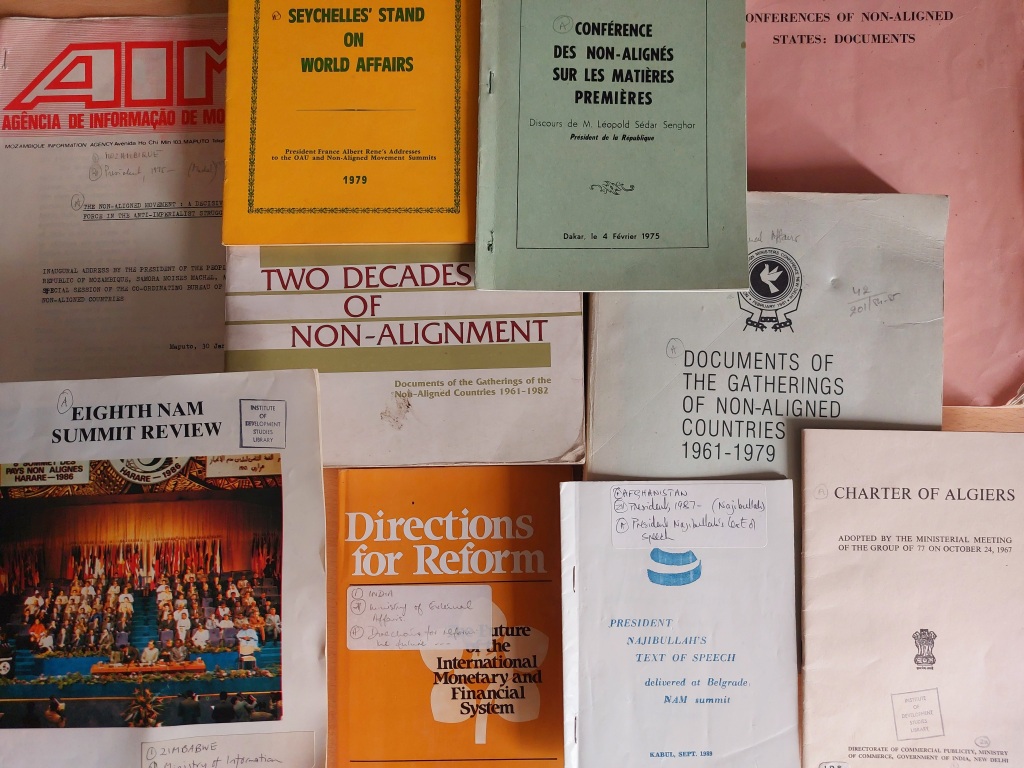


Participants discussed how we might want to engage with these in our work, how we might collaborate to explore specific features/items/stories in the collection, and what kind of questions we should be asking about the materials themselves – not to mention the question how the collection itself tells us about the history of UK involvement in international development over the second half of the twentieth century.
Then, in a big group discussion at the end of the day, we spoke about how to take things forward from this event, and how to go about engaging with this collection in a reparative or restitutive way. As a number of people mentioned, thanks in no small part to structural adjustment initiatives which actively defunded higher education institutions especially across Africa (discussed incidentally by Grieve Chelwa on this recent podcast), many of the items in the BLDS Legacy Collection are not held or easily accessible in locations that they were written or published initially. Attendees were in agreement that (a) we would like to encourage more people to know about and use the collections through our networks, but also (b) these collections should be accessible more widely, ideally online and without a paywall, for global majority students and researchers.
So, we had discussions about a ‘plan of action’.
- To make our networks aware of the collections
- To think about areas of interest you think could be a priority for digitisation (given that we need funding to digitise the collection in its entirety)
- To think about how we might to secure external funding to digitise the collection and make it open (no paywall/subscription)
- To seek, as an important precursor to point 3 and political move in its own right, an institutional commitment from Sussex/IDS that they will support efforts to digitise and make open these collections. To this end, some of the Sussex staff present will speak to colleagues in research director and other roles
- To create a collective statement on the importance of restitution/repatriation/reparative* approaches to this archive/collection, which we could then seek external signatories for to encourage the institution to make its commitment. Danny and I will liaise about a first draft of this statement to circulate to you all
We’re now in the process of putting this plan of action into effect – so watch this space and do get in touch with Paul (p.gilbert@sussex.ac.uk) or Danny (dgm24@sussex.ac.uk) with any questions!